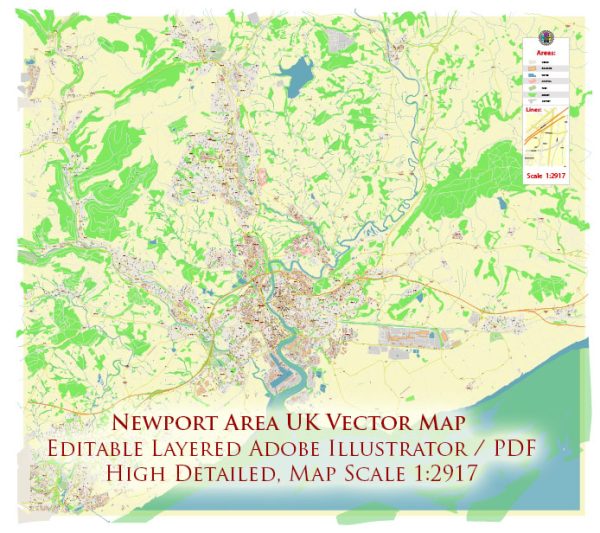Newport, located in South East Wales, United Kingdom, has a rich history of urban development that spans centuries. Here’s an overview of key periods and developments in Newport’s history:
- Medieval Period (circa 12th century):
- Newport’s origins date back to the Norman period when a castle, known as Newport Castle, was built in the 12th century by the Normans. The town grew around this fortress and became a market and trading center.
- Industrial Revolution (18th and 19th centuries):
- Newport played a significant role in the Industrial Revolution. The town’s proximity to coalfields and iron ore deposits facilitated the growth of industries, including coal mining, ironworks, and shipbuilding.
- The construction of the Monmouthshire Canal and the opening of the first Newport Bridge in the early 19th century enhanced transportation and connectivity, further promoting industrial development.
- Transportation Development:
- The arrival of the railways in the mid-19th century reinforced Newport’s status as a key transportation hub. The Great Western Railway connected Newport to London and other major cities, fostering economic growth and facilitating the movement of goods.
- Expansion of the Docks:
- Newport’s docks played a crucial role in the town’s economic prosperity. The expansion of the docks in the 19th century allowed for increased maritime trade and the export of coal and iron. The Alexandra Docks, opened in 1875, were a major addition.
- Urbanization and Population Growth:
- The increased industrial activity led to a significant influx of people into Newport. The town’s population grew rapidly during the 19th century as workers moved in to find employment in the burgeoning industries.
- World Wars and Post-War Reconstruction:
- Newport, like many other British cities, experienced the impact of both World Wars. The town contributed to the war effort, and the post-war period saw reconstruction and redevelopment. Suburbanization and the creation of new housing developments were notable features of this era.
- Decline of Heavy Industry:
- The latter half of the 20th century saw a decline in heavy industry in Newport, reflecting broader trends in the UK. The closure of coal mines and a shift away from traditional manufacturing industries had economic implications for the town.
- Regeneration and Redevelopment (Late 20th century to Present):
- In recent decades, Newport has undergone urban regeneration efforts to revitalize its economy and infrastructure. Redevelopment projects have focused on transforming former industrial areas, including the waterfront, into commercial, residential, and recreational spaces.
- Notable Modern Developments:
- The construction of the Newport City footbridge and the Friars Walk shopping and leisure complex are among the recent developments that have contributed to the modernization of Newport’s urban landscape.
Overall, Newport’s history reflects its evolution from a medieval market town to a bustling industrial center and, more recently, efforts to adapt and thrive in the post-industrial era through regeneration and redevelopment.


 Author: Kirill Shrayber, Ph.D. FRGS
Author: Kirill Shrayber, Ph.D. FRGS